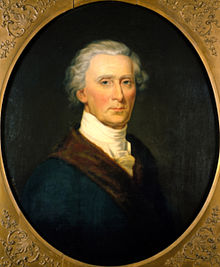June 05, 2013
June 05, 2013
Samuel Gregg: Pope Francis And The True Meaning Of Poverty
June 03, 2013
Samuel Gregg: Charles Carroll, Founding Father and Catholic Businessman
Acton’s Director of Research, Samuel Gregg, has a column in the latest issue of Legatus magazine. In it, he recognizes the accomplishments and Catholic faith of one of America’s Founding Fathers, Charles Carroll. Continue Reading...
May 28, 2013
Samuel Gregg: Is Pope Francis a Liberation Theologian?
May 09, 2013
Conservatives and the Non-Triumph of Capitalism
May 08, 2013
The Injustice of US Educational Attainment
May 07, 2013
Idle Young Americans: Are We Becoming Europe?
May 07, 2013
Samuel Gregg: The Incredible Shrinking Monsieur Hollande
April 30, 2013
Podcast: National Review’s John J Miller on ‘Becoming Europe’
April 29, 2013
